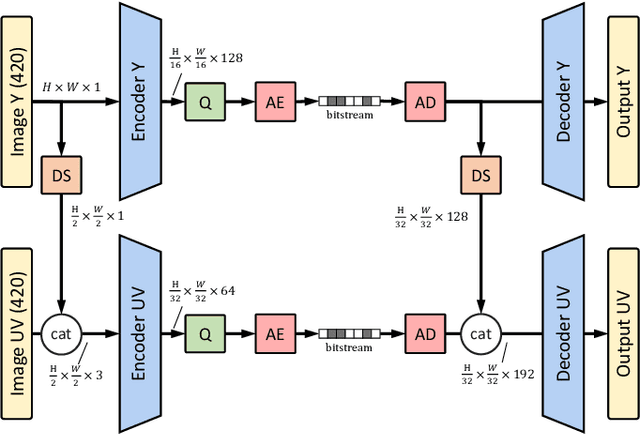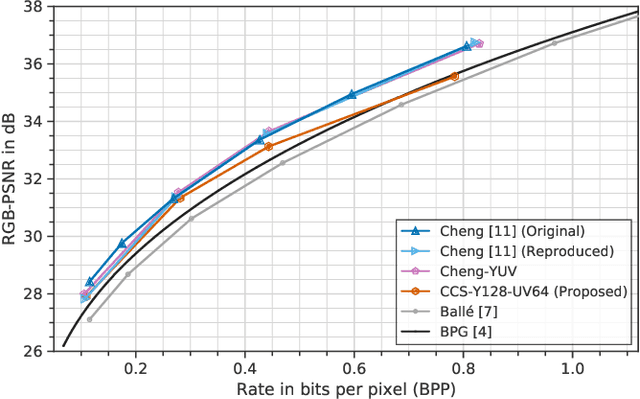Learning-Based Conditional Image Coder Using Color Separation
Paper and Code
Dec 12, 2022



Recently, image compression codecs based on Neural Networks(NN) outperformed the state-of-art classic ones such as BPG, an image format based on HEVC intra. However, the typical NN codec has high complexity, and it has limited options for parallel data processing. In this work, we propose a conditional separation principle that aims to improve parallelization and lower the computational requirements of an NN codec. We present a Conditional Color Separation (CCS) codec which follows this principle. The color components of an image are split into primary and non-primary ones. The processing of each component is done separately, by jointly trained networks. Our approach allows parallel processing of each component, flexibility to select different channel numbers, and an overall complexity reduction. The CCS codec uses over 40% less memory, has 2x faster encoding and 22% faster decoding speed, with only 4% BD-rate loss in RGB PSNR compared to our baseline model over BPG.
 Add to Chrome
Add to Chrome Add to Firefox
Add to Firefox Add to Edge
Add to Edge